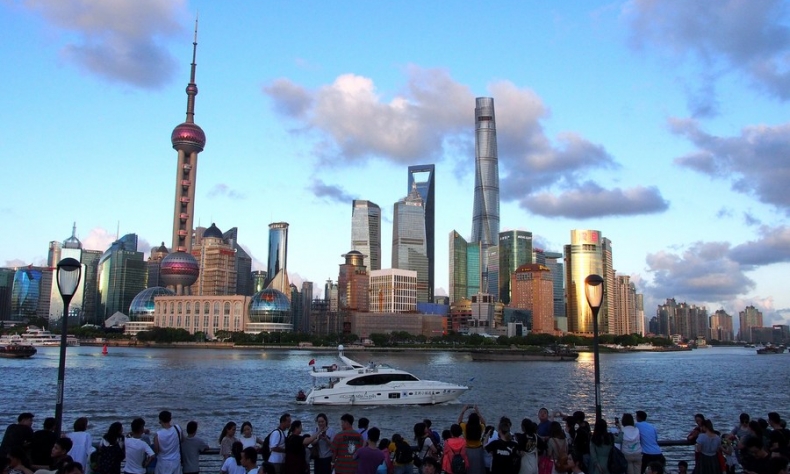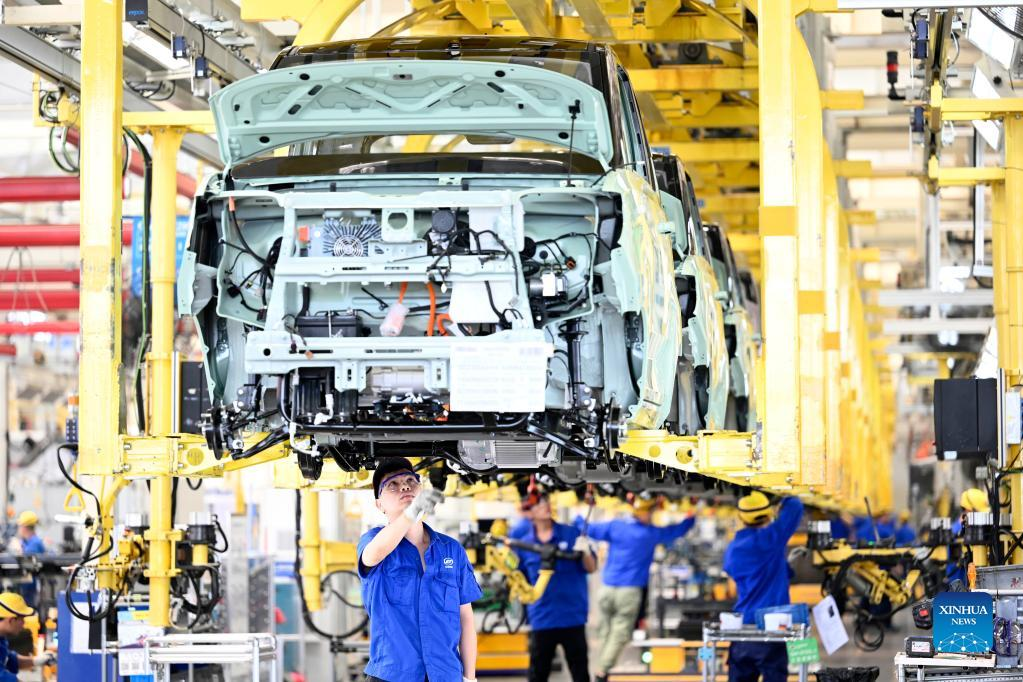China’s Recovery Contributes to Global Economy

China will continue to improve its business environment and deepen institutional reform, which will steer economic globalization towards open, inclusive, balanced, and win-win results and contribute to the global economy.
China recently released its major economic indicators in 2021, with the GDP reaching 114.37 trillion yuan ($18 trillion), which is a year-on-year increase of 8.1%, beating expectations. The growth rate was much higher than the world average of 5.5% in 2021.
Among others, China’s foreign trade of goods totaled 39.1 trillion yuan ($6.05 trillion) in 2021, increasing 21.4% yearly. Moreover, its imports and exports exceeded the $6 trillion threshold for the first time. Meanwhile, foreign direct investment broke all previous records, with the actual amount of foreign investment used in China being 1,149.36 billion yuan in 2021, a year-on-year increase of 14.9%.
One of the crucial factors to ensure China’s resilient economic performance is its continuous endeavors to pursue reform and opening up to achieve high-quality economic development. Despite the tremendous pressure brought about by the changes in the economic environment at home and abroad, the fundamentals of China’s strong economic toughness, sufficient potential, and long-term improvement have not changed.
The China International Import Expo (CIIE) has been held every year since 2018. After three years, the exhibition has developed into an essential platform for international procurement, investment promotion, cultural exchanges, and inclusive cooperation, serving as “an international public good for the world to share.” In addition, the expo facilitates factor resource sharing and internal and external market connectivity and helps boost the world economy.
In recent years, China has made great efforts to promote multilateral cooperation. In addition to the CIIE in Shanghai, the China International Fair for Trade in Service (CIFTIS) in Beijing is another important event showing the country’s determination to open up for multilateral cooperation. Moreover, China has been working on rule-based institutional reform and opening up, which can be witnessed with the accelerated construction of the Hainan Free Trade Port and the continuous promotion of the Pilot Free Trade Zone.

Likewise, several mechanisms have also been well established to ensure that China can work with more countries globally conveniently and smoothly, including the China and the Central and Eastern European (CEE) countries cooperation mechanism, the China-ASEAN dialogue relationship, as well as the Forum on China-Africa Cooperation (FOCAC) and the China-CELAC (Community of Latin American and Caribbean States) Forum.
As the world’s second-largest economy, China’s effort to ensure its door opens ever-wider to the world and determination to promote international cooperation under the frameworks of various multilateral agreements will encourage more countries to tap into its market potential and achieve joint development.
The World Bank’s latest Global Economic Prospects report predicts that global economic growth is expected to significantly decelerate to 4.1% in 2022 from the 2021 level of 5.5%. The rate is expected to be 3.2% for the year 2023. The rapid spread of the Omicron variant indicates that the pandemic will likely continue to disrupt world economic activity in the days to come. Moreover, a notable deceleration in major economies will weigh on external demand in emerging and developing economies.
China’s development will face pressure and challenges ahead, given the external uncertainties. However, the country’s economy is expected to maintain a stable growth momentum as it continues to accelerate the development of the digital economy. In addition, China will continue to improve its business environment and deepen institutional reform, which will steer economic globalization towards open, inclusive, balanced, and win-win results and contribute to the global economy.
He Shuquan is a professor at the School of Economics, Shanghai University. He is also a member of Fudan University-Jinguang Group Think Tank.
 Facebook
Facebook
 Twitter
Twitter
 Linkedin
Linkedin
 Google +
Google +










